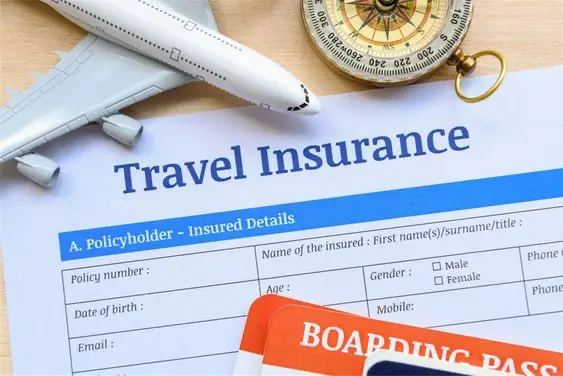A Short Guide To Travel Insurance
Thebestindonesia.com – Travel insurance protects travel expenses against adverse events such as cancellations and disruptions and covers medical costs, property loss or damage, and connection delays.
Millions of travelers and vacationers buy some form of insurance each year, but only some people know what it is and how it is defined. Knowing what’s included and what’s not will help you maximize your protection and receive a fair refund.
There are four main categories of travel insurance:
Health and medical reasons
- Emergency evacuation:
This guarantees emergency transport to a local hospital if the traveler cannot reach the local hospital or returns to a hospital closer to the traveler’s hometown. If your family has the same insurance, you can even go home. - Medical reasons:
This will reimburse emergency medical and dental costs. Almost all vacation insurance plans work by returning travelers after paying for treatment locally. Complaints are typically received within 7-10 business days. Most policies cover pre-existing medical conditions if the procedure is purchased within 21 days (maximum) from the date of the traveler’s first payment or security deposit.
Read also : A Review On Travel Insurance: Do You Need It Or Not?
Delay and Cancellation or Reduction
- Cancel:
Reimbursement shall not be made in the event of a vacation booked and paid for by the traveler. Still, in the event of personal illness or injury, death (individual or family), severe weather, transportation strikes, terrorism, bankruptcy, sudden unemployment, or jury duty, It is adequate when challenging circumstances are the cause. Houses that are uninhabitable due to fire or flood damage. - Delay:
This will reimburse travelers for hotel, food, and clothing costs in the event of flight delays. Some plans also cover the costs associated with making up the cruise if another delay prevents the traveler from boarding the ship. - Interruption:
The insurance company reserves the right to cancel travel due to illness, death (of the traveler or family member), terrorism, weather, airline strikes, bankruptcy, sudden unemployment, and other unfavorable circumstances. Pay the policyholder. Travel to events for which the vacation maker is not responsible must be canceled.

Death
- Accidental death.
It covers death or personal injury at any time during your trip. The higher the risk, the lower the guaranteed amount is usually. - Aircraft accident.
This only covers death or personal injury in flight. The relatively low chance of this happening usually ensures the best coverage. - Common career.
It covers death or personal injury while traveling on public transport such as planes, ferries, trains, buses, and taxis.
Read also : A Guide to Buying and Using Travel Insurance
Property Lost and Damage
- Lost luggage:
Cover travelers for lost, stolen, or damaged personal items. This coverage is generally limited to the duration of travel and is not limited to damage or loss of baggage by the airline. There are two policy limits, total billing amount and maximum amount per item. Some policies limit the things that can be claimed—for example, Expensive jewelry, laptops, and sports equipment. - Hire Car damage:
This reimburses travelers for damage or loss to a rental vehicle. It is designed to allow the traveler to decline collision damage waiver (CDW) coverage offered by car rental companies. Liability coverage should still be purchased through the car rental company. Rental Car Damage coverage is also often included with the credit card used to pay for the car rental, which usually matches the range provided in the policy. - Assistance services:
Guarantees a 24-hour collect telephone advice and assistance service to travelers. This service can be used anytime a traveler needs advice. Could you ensure you keep a copy of this number in several places in your luggage or your person when you move around?
Have a nice holiday!